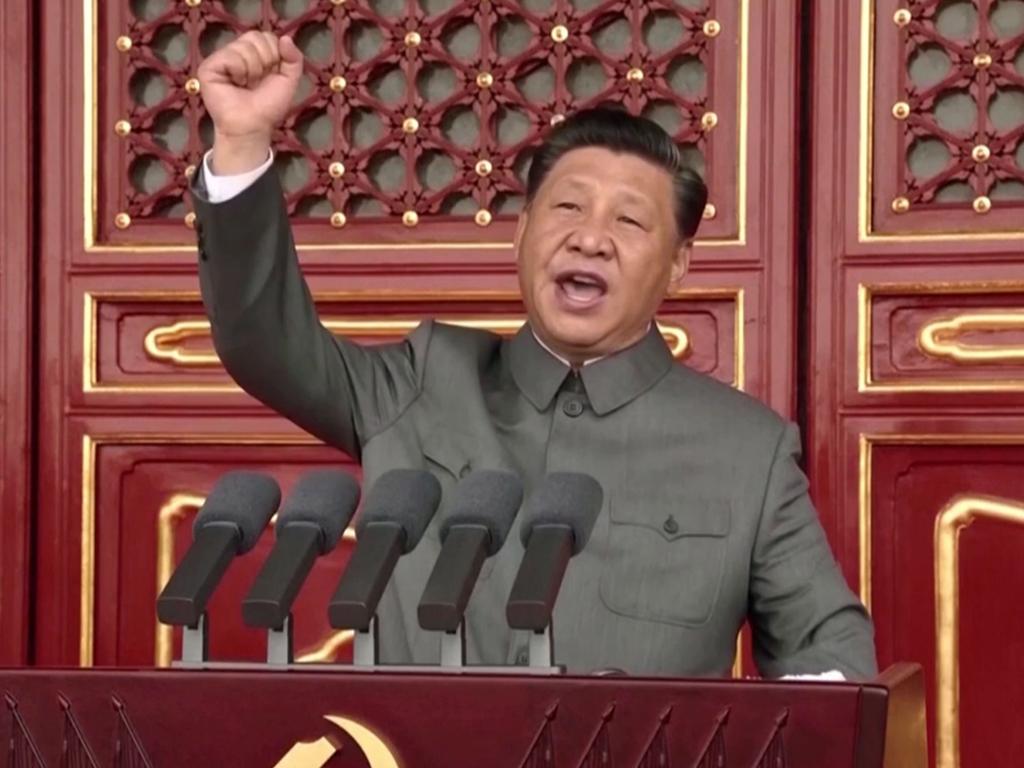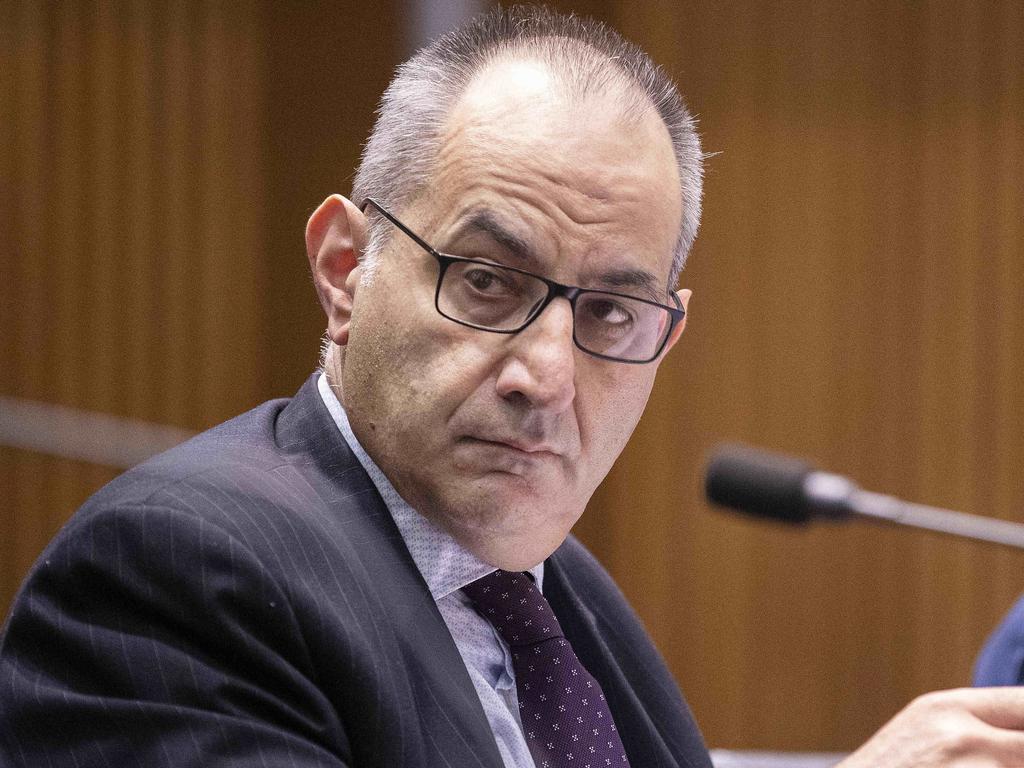Labor must take the global threat posed by the new axis of evil more seriously, says Mike Pezzullo
One of the country’s leading defence analysts says the Albanese government has gravely underestimated the threat posed by the growing alliance of China, Russia, Iran and North Korea.

Australia has gravely underestimated the threat posed by the growing alliance of China, Russia, Iran and North Korea and should be grateful for the “invaluable” damage Israel is now inflicting on Iran’s terror proxies, according to one of the country’s leading defence analysts.
Mike Pezzullo, former deputy secretary of defence and former secretary of home affairs, says the nation’s foreign policy is “naive” and out of touch with the “hard strategic realities” facing this generation of Australians.
His comments come amid a further escalation of war in the Middle East as Israel steps up its campaign to destroy the Iran-backed Hezbollah terror-group in Lebanon ahead of an expected significant military strike by Israel against Iran.
It also comes as Anthony Albanese is expected to confront Chinese Premier Li Qiang at the ASEAN Summit in Laos over Beijing’s maritime aggression towards its neighbours including the Philippines. This is despite a further improvement in relations with Beijing, which this week said it would drop its ban on Australian lobster imports.
Mr Pezzullo cites China’s hegemonic behaviour in the Indo-Pacific, Russia’s aggression in Ukraine and the attacks on Israel by Iran-backed terror groups as each being enabled by the growing “axis” between China, Russia, Iran and North Korea.
He states that this new axis of dictatorships is now more powerful than the 1930s and ’40s axis of Nazi Germany, Imperial Japan and fascist Italy because of its global economic clout and nuclear capability. He writes in the Weekend Australian that Australia must play a more active military and diplomatic role alongside the US in countering this “emergence of a hegemon in Eurasia”.
“The vital elements of Australia’s geopolitical strategy – such as contributing to regional deterrence against China, acquiring long-range, nuclear-propelled submarines, and building up US combat power in northern Australia – make more sense if we see them as examples of Australia working with others to counter the emergence of a hegemon in Eurasia,” Mr Pezzullo says.
“Australia would be best served by playing its part in the US-led counter-hegemonic strategy in the struggle for mastery in Eurasia.”
Mr Pezzullo describes the growing ties between China. Russia, Iran and North Korea as “already more formidable” than the axis of the 1930s which fought and lost World War II.
“It has greater economic strength and can better work together. We need to take it far more seriously as we face a greater threat to our national security than we did previously – because this axis has nuclear weapons,” Mr Pezzullo says.
“Members of today’s axis can support one another in ways that the axis of WWII could not, because today’s axis can use internal lines of supply to move resources around the Eurasian supercontinent,” he added.
“Russia’s war effort is being propped up by China, Iran and North Korea. Without that support, and with the US and Europe supporting Ukraine, Russia would lose the war.”
Mr Pezzullo says China and Russia have a deep interest in propping up Iran as a means of keeping the US pinned in the Middle East.
“Israel’s continuing degradation of Iran’s military capabilities and its proxy partners is of invaluable assistance to the West in the great Eurasian strategic struggle,” he says.
Israel has seriously depleted the leadership and capabilities of the Iran-backed Hezbollah in Lebanon in recent weeks through a series of targeted assassinations and heavy bombardment of Hezbollah military sites.
Israel has warned of an imminent “deadly” and “surprising” attack on Iran in retaliation for a major Iranian missile strike against Israel early this month.
The Albanese government has refused to clearly back Israel’s military campaign against Hezbollah in Lebanon, despite stating that Israel has a right to defend itself.
Israel says its campaign against Hezbollah is aimed at stopping the daily missile and drone attacks by the terrorist group on northern Israel that has forced more than 60,000 Israelis from their homes.
Mr Pezzullo says that “at times, Australian foreign policy discourse appears to be premised on naive ideas”.
“(Such as) war in the Indo-Pacific region is to be avoided ‘at all costs’, because it would be catastrophic. Really – what if the alternative would be worse? Or that it would be in our interests to ‘triangulate’ a position of relative autonomy between the United States and China. Really – are we saying the problem is their rivalry?”
“Or that Australia and Southeast Asia might somehow present a united front in the face of US-China competition and confrontation. Really – even if it could be achieved, would this be desirable?”
Mr Pezzullo says China’s deep integration with the global economy further complicates the nature of its threat.
“Previous aspirant hegemons such as Imperial Germany and Soviet Russia were simply never so central to the trading and investment structures of so many other economies,” he says, adding a US-China war would not be a regional war.
“It would quickly become a global war. China would expect Russia to be involved, perhaps by attacking Japan from the north. Iran would be prevailed upon to keep US forces pinned in the Middle East. North Korea might even attack South Korea in such a scenario.”
Mr Pezzullo said the government needed to better prepares Australians for the strategic challenges ahead.
“While the emotional longing for quiet security has been a constant in the Australian national imagination, hard strategic realities have always been closer than they might appear.”








To join the conversation, please log in. Don't have an account? Register
Join the conversation, you are commenting as Logout